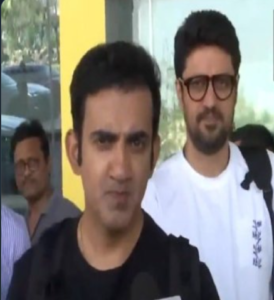No property tax for small houses, places of worship: J&K govt
Jammu, Feb 23 (PTI) The Jammu and Kashmir administration on Thursday said people who have small houses of built-up area of up to 1,000 square feet have been exempted from paying the property tax that will be levied from April 1 onwards.
The decision of the administration of levying the tax has faced criticism from several quarters, including political parties, but officials claimed it is being levied with minimum financial implications for the people of the Union Territory.
In a meeting chaired by Chief Secretary Arun Kumar Mehta to deliberate upon “misinformation created regarding property tax in Jammu and Kashmir, it was clarified that all the poor, marginalised having small houses having built-up area up to 1000 square feet have been exempted by the government from paying any property tax to be levied from April onwards this year”, an official spokesman said on Thursday night.
“The levy of property tax is essential part of urban sector reforms. Jammu and Kashmir is one of the last states and UTs (union territories) to levy property tax and non-imposition of the tax was depriving local bodies to become self sustaining. Urban Local Bodies (ULBs) are required to render multiple civic services in their jurisdiction and need resources,” he said.
The levy of this tax will improve the financial health of these institutions and improve services, besides creating employment, the spokesman said.
While explaining on how this tax would be levied, officials said that there is no tax liability for those having houses of built-up area of less than 1,000 square feet. Besides this, the proportion of tax is considerably lesser here than that levied in other parts of the country, he claimed.
Similarly, all places of worship such as temples, masjids, gurudwaras, churches and ziarats, and cremation and burial grounds are exempt from payment of property tax, the spokesman said.
The officials said that tax is proposed to be levied at just five per cent of taxable annual value (TAV) of the property in case of a residential property and at six per cent of TAV in case of non-residential property.
The tax rates, even in municipal corporations, are one of the lowest in the country, almost half that of Himachal Pradesh, and one-fourth to one-sixth, overall, of other progressive states and UTs such as Gujarat Maharashtra, Karnataka and Delhi, they claimed.
The tax to be paid in municipal committees would be much lower than that of municipal corporations. There is no property tax in rural areas, the officials said.
Besides property tax is to be assessed and paid on an annual basis, they added
Elucidating further, Jammu Municipal Corporation Commissioner Rahul Yadav said that the tax is progressive in nature with low tax on smaller assets. It is linked to circle rates lower the circle rate, lower is the tax liability of the owner, he said.
The tax also takes into account factors such as age of property, usage type and construction type to arrive on TAV for realistic capturing of value of property, the officials said.
Elaborating on the tax slabs, they said that property tax to be levied on a 35-year-old residential house with built-up area of 4,500 square feet in Gandhi Nagar is assessed to be Rs 5,758 for one year.
Similarly, the owner of a 25-year-old residential house in Sarwal with a built-up area of 2,000 square feet will have to pay only Rs 1,063 as property tax, the officials added.
A five-year-old residential house with a built-up area of 3,500 square feet in the Channi area would be assessed to Rs 5,374 property tax for one year, they said.
Small shops would have to pay very small amounts. A small shop in the old city area of Jammu with area of about 200 square feet which is 20 years old would be liable to pay tax of only Rs 838 per annum, the officials said.
Chief Secretary (CS) Mehta directed deputy commissioners to create awareness in their areas by giving such “real examples” of calculation of the tax for different properties to ULBs, the spokesman said.
He observed that the misinformation created among people should be addressed by engaging with them.
The CS asked them to involve elected representatives and civil society members in dissemination of the information and actual objectives of imposing the tax.






